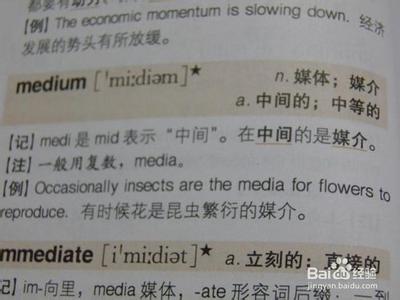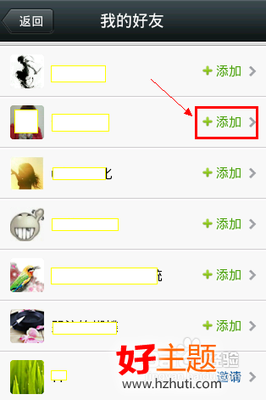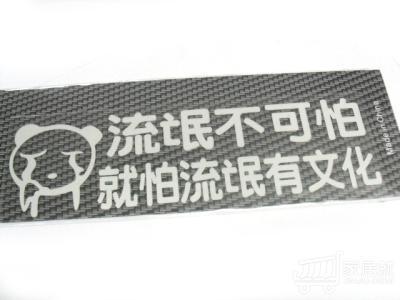在英文书信里,落款的写法大有讲究,远近亲疏,各有不同。
小编今天就给大伙聊一聊几种常用落款(sign-off)的来源及用法。
Regards
[ri'ga:dz]
▌来源
The word regard comes to us from the Old French regarder meaning 'to look at.'
单词“regard”源于古法语“regarder”,意为“看,望”。
This definition is still evident in its senses today, which range from 'to look upon or think of with a particular feeling' to 'respect, esteem, or deference.'
其现代词义从“以特殊感情看待或考虑”到“尊敬、尊重、敬重”,至今“看,望”的定义依然存在。

When used as a valediction, regards is intended to indicate sentiments of esteem or affection, and often follows kind, warm, or best.
“Regards”用作落款时表示尊重或喜爱的感情,前面常跟“kind”、“warm”或“best”。
Some consider variations such as warm regards ideal for conveying a balanced tone of friendly professionalism.
有些人认为其变体如“warm regards”可以完美传达出一种能平衡友好与专业化的语气。
▌用法
商务往来或者正式文书。如果你和收信人没有在现实中打过交道,就用这个。
Cheers
['t?i?z]
▌来源
This term gained popularity in British English as a salutation before drinking in the early 1900s, but is now commonly used as a sign-off on both sides of the pond.
这个词在20世纪初期作为祝酒词在英式英语中得到普及,但现在通常在英美英语中用作落款。
The word cheer entered English with the sense of 'face,' reflecting its Latin counterpart with the same meaning, cara.
单词“cheer”成为英语中的词汇时意思为“脸”,其在拉丁语中的同义词为“cara”。
Eventually it took on a metaphorical sense of 'mood or mental condition,' as reflected in the face, then gave way to senses of 'gladness' and 'joy.'
后来,该词出现了一种比喻性含义,即“情绪或心理状况(在脸部体现)”,随后又变为“愉快”和“欣喜”。
Given the term's mirthful history, this valediction is particularly apropos if the subject matter of your correspondence is celebratory or congratulatory in nature.
由于该词历来有高兴的含义,因此这一落款尤其适用于通信主题的性质为庆贺时使用。
▌用法
随和性质。用于朋友。如果你希望看起来平和一点,也可以用于同事,但有不太正式,显得不专业的风险。
Cordially
[,k?:dj?li]
▌来源
When English speakers first started using the term cordially, it carried a more impassioned sense than it does today.
单词“cordially”最初被使用时,其含义比现在更加富有感情。
Its earlier sense was 'with the deepest feeling' or 'heartily.' This reflects its Latin root word, cor, meaning 'heart.'
它的早期含义为“最深的情感”或“衷心地”,反映出了其拉丁词根“cor”(意为“心脏”)的意思。
The word now conveys more of a congenial tone than a sentimental one, but it registers as more formal and old-fashioned than many of the terms on this list, making it a less desirable option for those who want to keep their correspondences breezy.
现在,这个单词更多地用于表达令人愉快而非传递情感,但是,比起这里所列的其他许多落款来说,该词显得更加正式、老派,因此对于想要在通信中营造轻松愉快的氛围的人来说,“cordially”并非合适的选择。
▌用法
正式。在商务谈判场合,当信件话题很严肃的时候使用。有时,当你和收件人之间有分歧或者冲突的时候,也可以使用。
Thanks
[θ??ks]
▌来源
As a sign-off, this simple expression of gratitude offers a range of interpretations, such as 'thanks for your attention and time while reading this e-mail' or 'thanks in advance for tending to the request that I outlined in this e-mail.'
作为落款,这个简单的表达有很多的解释,如“感谢您阅读这封邮件所花的注意力和时间”或“提前感谢您受理我在本封邮件中概述的要求”。
The earliest sense of the word thank, or panc as it appeared in Old English, was “thought.”
单词“thank”或其古英语“panc”最早的含义为“想法”。
Some prefer to liven up this now-ubiquitous sign-off with an exclamation mark (thanks!) or by incorporating it into more effusive expressions such as thanks so much.
有些人喜欢在这个现在尤其普遍的落款后加上感叹号(thanks!)或者一些更加情绪化的表达如“thanks so much”(非常感谢),让其更加生动。
▌用法
也有人会用Thank you。Thanks偏随和,而Thank You偏正式,常用于商务场合。当你给陌生人写信,尤其是请求协助,提出要求或者询问事项时,Thank You是收尾的好选择。
Sincerely
[sin'si?li]
▌来源
The earliest definition of sincere is 'free of falseness.'
“Sincere”最早的定义是“真实”。
It comes from the Latin sincerus meaning 'clean, pure, untainted.'
它来源于拉丁词“sincerus”,意为“干净、纯洁、无瑕”。
the Latin sincerus meaning 'clean, pure, untainted.' The adverbial form sincerely appeared as a valediction in letters starting around 1700, and is still used as a sign-off with a sense of 'in earnest' or 'genuinely.'
大约从1700年起,其副词形式“sincerely”开始作为落款出现在信件中并沿用至今,意思为“诚挚地”或“真诚地”。
Some suggest that this salutation is best suited for letters, not e-mails, due to its formal tone.
由于此词语气正式,一些人认为它最适用于信件而非电子邮件。
▌用法
日常交往,商务往来或者正式文书都可以使用,是标准的结尾方式。
Sincerely是最为通用的形式,无论日常和正式通信都可以使用。如果不确定怎么结尾署名,就用sincerely吧。
Best
[best]
▌来源
This succinct sign-off appears to be a shortening of a range of superlative expressions, including 'all the best,' 'best wishes,' and 'my best,' all of which are expressions of goodwill.
这个简洁的落款是一系列祝词的缩写,其中包括“all the best”(一切顺利)、“best wishes”(最美好的祝福)和“my best”(我最好的祝福),均表达善意。
The word best shares an Old English root with the word boot, which meant 'good' when it entered English.
“Best”一词与“boot”的古英语词根相同,而“boot”成为英语词汇时意为“好”。
Some consider best to be an abrupt and impersonal way to end a correspondence, but others enjoy its brevity and upbeat tone.
一些人认为“best”用于信件结尾有些生硬、缺乏人情味,但是其他人则喜欢其简洁上扬的语调。
▌用法
日常交往或者商务场合都可以用,是一种礼貌的方式。对朋友和陌生人都可以用。
Yours
[j??z]
▌来源
Variations on yours and yours truly have been favored valedictions among writers such as Charles Dickens, who signed letters to acquaintances 'heartily yours' and 'faithfully yours,' and Jane Austen, who famously ended letters between characters in Pride and Prejudice with 'Yours, etc.'
“Yours”和“Yours truly”的变体是作家们偏爱的落款,例如,查尔斯·狄更斯在写给熟人的信件中落款就是“heartily yours”和“faithfully yours”,简·奥斯丁则以《傲慢与偏见》中各人物的通信信件以“Yours, etc.”结尾而出名。
Yours connotes a level of devotion that might come off as too intimate for work-related correspondences, but lends itself to a range of fun possibilities for pairing with adverbs in personal contexts.
“Yours”暗含一层挚爱的意思,因此对于工作相关的信件,这个落款可能太过亲密,但是在私人信件中,“Yours”可以加上各种副词,使其充满各种乐趣。
▌用法
日常交往或者商务场合都可以用,虽然有一点点随意,但还是一种礼貌的方式。一般用于你之前见过面的对象。
Respectfully
[ri'spektfuli]
▌来源
Respectfully connotes a level of esteem for the recipient of the correspondence.
“Respectfully”有对收信人表示尊重的意思。
The base word, respect, comes from the Latin respectus, which translates literally to 'action of looking back.'
其词根“respect”来源于拉丁词“respectus”,从字面上翻译为“回望”。
In less formal correspondences, pairing this term with yours in constructions such as yours respectfully can have the effect of personalizing and softening the formal tone that the word evokes on its own.
在没有那么正式的信件中,将此词与“yours”放在一起,如“yours respectfully”能产生私人化的效果,弱化该词本身的正式语气。
▌用法
Yours respectfully在较不正式的信件里使用,可以拉近与收信人之间的私人关系。
▌另外,在商业信函里,可根据对收信人的熟悉程度来使用相应的落款:
?当不知道具体的收信人姓名时:
Dear Sir … Yours faithfully
Dear Madam … Yours faithfully
Dear Sir or Madam … Yours faithfully
?当知道收信人的姓名时:
Dear Mr Hanson … Yours sincerely
Dear Mrs Hanson … Yours sincerely
Dear Miss Hanson … Yours sincerely
Dear Ms Hanson … Yours sincerely
?对整个部门写邮件时:
Dear Sirs … Yours faithfully
来源:dictionary.com、中国日报翻吧
编辑:齐磊、陈芊芊<实习>
 爱华网
爱华网



